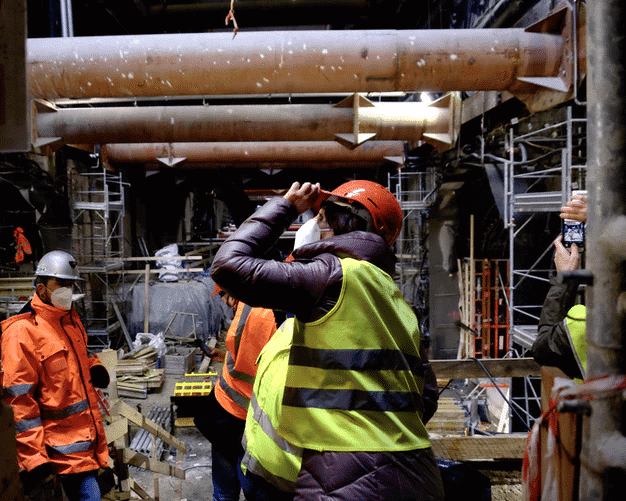Energy Engineering : All You Need To Know
Updated: June 19, 2024
Published: July 20, 2021

What is energy engineering? In short, energy engineering studies and utilizes energy systems in order to use it in the most efficient way possible. Energy engineers work in a variety of roles in order to continuously improve the way we use energy resources and systems.
In this article, we’ll go over the basics of the energy engineering field, careers and specializations, education requirements, salaries, and more.
What is Energy Engineering?
Energy engineering is a field which combines physics, mathematics, and chemistry to apply modern solutions to energy generation, consumption, and systems. Energy engineers may research, develop, construct, or implement energy solutions, including alternative energy systems like wind or solar energy.
Energy engineering converts various resources into energy. New or modern engineering processes also place an emphasis on researching and developing green technologies in order to reduce harmful and overused energy consumption.

What Does an Energy Engineer Do?
An energy engineer analyzes environmental and energy issues, then develops and implements solutions. Their goal is to efficiently manage energy through technology, and a good candidate for energy engineering will have (or develop) a good handle of mathematics and science.
How to Become an Energy Engineer
A prospective energy engineer will need a bachelor’s degree in engineering in order to enter the field. Some employers may require further education or certifications, but a bachelor’s degree is a good start. Additional training or internships are recommended for students to gain skills and further knowledge.
Energy engineering technicians may be able to begin working after an associate’s degree and on-the-job training. However, energy engineers may require a master’s and even a doctorate for certain high-level engineering careers.
It is possible to complete a bachelor’s engineering degree and then work under senior engineers for training. After 4 years of work training, a prospective engineer can take the Fundamentals of Engineering or Professional Engineering exams to become a certified engineer.
Types of Energy Engineering Careers
Energy engineering is a diverse field of work, and there are many different job roles. Below are some common types of energy engineering careers.
Renewable Energy Engineer
Renewable energy engineers work on sustainable energy planning and technologies. This may be in the form of research, or the development and implementation of energy-efficient technology and tools. Two of the major roles in this field are solar system engineering and wind energy engineering.
- Solar System Engineer Job Description
Solar systems extract energy from the sun using solar panels. A solar system engineer may do home installations or city-wide solutions. The daily tasks of a solar system engineer may include: consultations with clients or prospective clients, project site assessments, solar system inspections, or compliance reviews.
- Wind Energy Engineer Job Description
A wind energy engineer is responsible for designing or installing wind farms which utilize wind as an energy resource. A wind engineer might design wind farm layouts and blueprints, manage the manufacturing of wind technologies, or test out wind technology components.
Energy Systems Engineer (ESE)
Another kind of energy engineer is an energy systems engineer. They focus on the big picture of energy systems and broad knowledge of the economics of energy systems.
An energy system engineer may be responsible for improving energy storage systems, overseeing energy distribution, or analyzing the effects of various energy systems on the environment and economy.

Green Building Engineer
Green building engineers work with other infrastructure developers to ensure that buildings make the most use of available energy systems. A green building engineer will analyze all building plans and construction to make sure that all aspects are energy efficient. This may include recommendations for raw, energy-efficient building materials or structure designs that utilize passive heating and cooling methods.
Green building engineers may even help design buildings that are off the grid, which means they produce and store their own energy. Lastly, green building engineers may evaluate existing buildings in order to recommend changes to its energy storage.
How Much Does an Energy Engineer Make?
The salary for energy engineers varies greatly depending on the specialization, experience, education, and location of each engineer. An energy engineer technician, for example, which requires less training and education, makes a lower median salary, while licensed engineers could expect a higher salary.
The median salary for energy engineers across the United States is averaged around $80,000. A low median salary is around $40,000 to $50,000, and a high salary averages around $130,000. In some states where energy engineering is necessary and utilized, such as Alaska, engineers can potentially make more than $200,000.
Where Do Energy Engineers Work?
An energy engineer usually works typical business hours, however, it can vary depending on their clients or projects. Depending on each engineer’s specialty, they may spend some time working in an office, while some may spend a lot of their time on-site for evaluation, installations, and maintenance.
For example, a solar engineer may spend a lot of time traveling and working on job sites for installation and maintenance. Wind energy engineers, on the other hand, have more flexibility in their work environment and may also complete a lot of their work in-office or at a home office in between traveling.
The Bottom Line
The field of energy engineering has a lot to offer. So, what is energy engineering? It’s the field that utilizes energy systems to use energy resources most efficiently and economically. Energy engineers enjoy a dynamic career, with a lot of room for innovation, hands-on work, and analytics.
